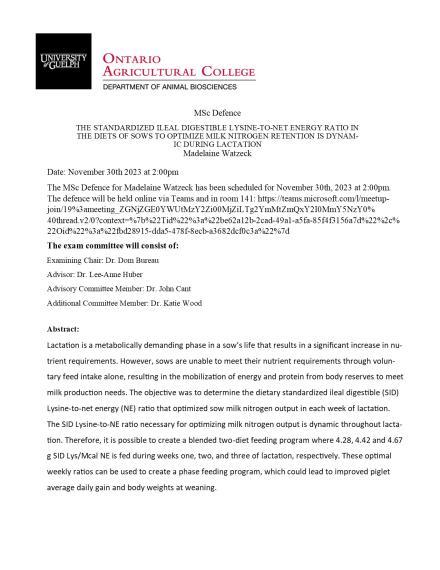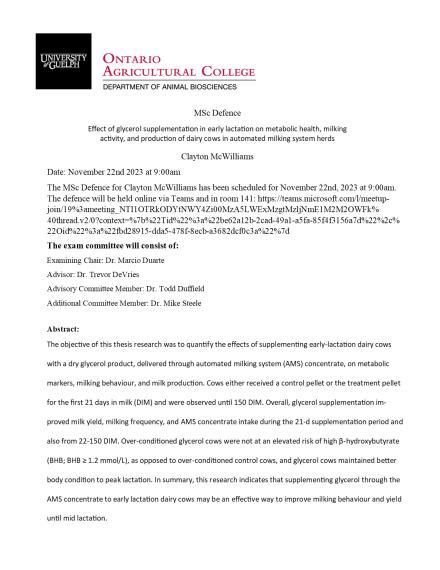Good afternoon CGIL,
We are happy to invite you to a special in-person CGIL seminar. We will have Dr. Marc-Andre Sirard, Directeur Centre de Recherche en Reproduction, développement et santé intergénérationnelle, present on Monday, November 6th, 2023. The seminar will begin at 2:30 PM EDT/EST in ANNU 141. The title of the presentation is: "The epigenetic perspective in dairy cows: from the oocyte to the next generation".









